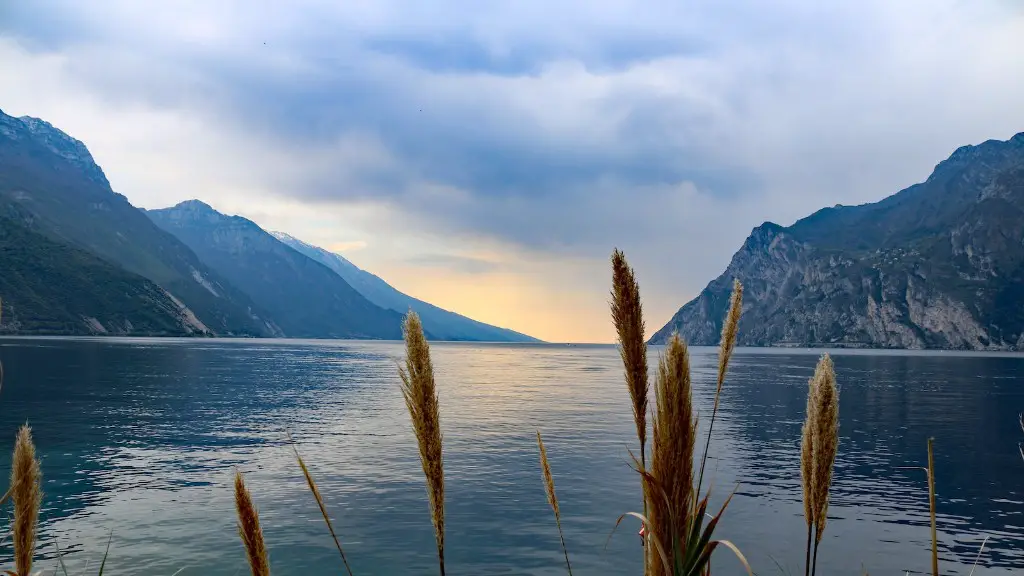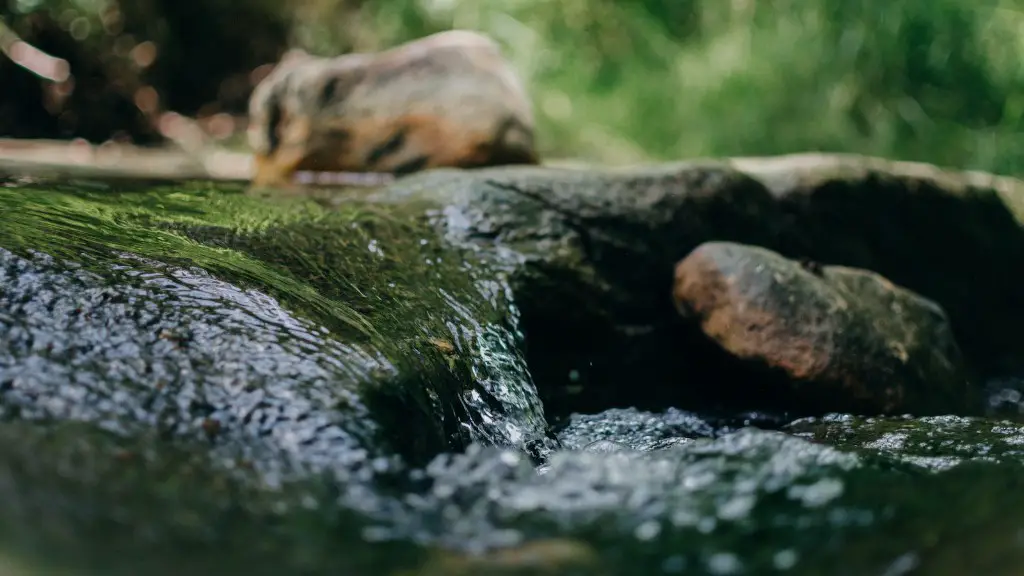The Mississippi River dominates the landscape of Louisiana, flowing for a distance of 2,340 miles, through ten different states before emptying into the Gulf of Mexico. This major waterway has been a major route of transport between the Atlantic states and the interior of the United States for centuries and also plays a crucial role in the state’s economy.
Louisiana is one of the nation’s largest energy producers, and its Gulf of Mexico ports are a main entryway for crude oil and other transported goods. Mississippi River ports receive Oil and gas products and provide secure access to the Gulf of Mexico, making them vital assets to the Louisiana economy. The river has enabled Louisiana to receive economic benefits from countries around the world and contributes heavily to the energy industry, providing crude oil, natural gas and various byproducts.
Additionally, the Mississippi River serves as a vital source of transportation, making it easier for businesses to get their products to the global markets. This is especially true for the state’s agricultural products, including cotton, soybeans, and rice, which are important to the economy. The Mississippi River also serves as an outlet for waste products from refineries and allows for navigation to take place aboard barges, allowing for more efficient shipping options.
The presence of the Mississippi River has a significantly positive effect on Louisiana’s economy. It has increased the availability of resources for businesses in the area, resulting in an expansion of trade and commerce. The presence of the river has also provided job opportunities, such as those in the port industry, resulting in the diversification of the local economy.
In addition to transportation and shipping, the Mississippi River plays an important role in providing water for consuming and economic activities. It provides freshwater sources to nearby states and local communities, providing hydropower to a variety of industries from manufacturing to energy production. It is also a major source of drinking water for people living along the riverbanks.
The Mississippi River is a vast source of life and vitality for the surrounding land, providing a mutual support system for people, the economy, and environment alike. Its presence provides transportation and job opportunities, resources, and a sense of safety and well-being to locals. The river’s influence doesn’t stop at providing necessary economic benefits; it is a symbol of heritage and serves as a source of recreation, entertainment, and spiritual healing to the citizens of Louisiana.
Agricultural Production
The Mississippi River has had a strong influence on the agricultural production of the region, providing farmlands with access to diverse soil nutrients and providing necessary irrigation for local agricultural production. This includes a wide range of products, from harvested crops to livestock production. The agricultural industry offers an important source of income for Louisianans, generating over $5 billion in economic activity. The fertile soils nourished by the Mississippi River provide an affordable and convenient source of food for the people of the region, helping to promote a healthier lifestyle.
The river is also an important source of water for the state’s farmers, providing a necessary source of water for crop production and irrigation. The presence of the Mississippi River in Louisiana helps to create an overall healthy agriculture sector that is able to meet the demands of the local and regional market.
Tourism Industry
The lower section of the Mississippi River is an ideal spot for tourism, offering various forms of recreational activities such as fishing, boating, and swimming. The popularity of the river has led to the establishment of numerous tourism businesses in the area, and it has become a major source of revenue for Louisiana. The growing popularity of the region’s tourism industry has led to an increase in job opportunities and economic growth.
The Mississippi River is also known for its natural wonders, such as the many spectacular waterfalls and rugged banks along its course. The presence of this rich wildlife has attracted many photographers and tourists from all around the world, allowing them to take in the beauty of the Mississippi River. As a result, the surrounding area provides much-needed jobs and income to local communities, as well as a sense of pride to locals for the preservation of this natural wonder.
Economic Development
A major factor contributing to the success of Louisiana’s economy is the presence of the Mississippi River. The river’s vast network of transportation, shipping and service opportunities have turned the state into a major economic hub, bringing in people and businesses from all over the world. Financial investment in the area has also helped to promote economic development in the state, and this has been particularly beneficial to rural communities.
Highway projects and railroads have been built to link major cities with rural communities. Additionally, the proximity of the Mississippi River to the state’s ports has allowed businesses to utilize efficient shipping methods to transport their products. This has sparked economic development in the region, resulting in a rise in job opportunities and economic growth.
Preserving the Mississippi River
The fishing industry is another major beneficiary of the activities conducted along the Mississippi River. Fishing is an important means of livelihood for people residing along the riverbanks and is a crucial part of the region’s economy. Moreover, the presence of the river provides an essential source of nutrients and food for the fish, allowing them to continue to thrive in the area.
The importance of the river has led to the establishment of various efforts to preserve the health and safety of the river. These include clean-up measures, such as dredging, habitat rehabilitation and restoration, and improved pollution control systems. Through these efforts, the Mississippi River remains an important source of life and nourishment for the people and businesses of Louisiana.
Water Resources Management
The Mississippi River is an integral part of Louisiana’s water resource system and serves as an important source of surface and groundwater for designated areas throughout the state. The presence of the river has allowed residents living in rural areas to access relatively clean and safe drinking water, which is important for the maintenance of public health. The river is also a vital source of water for irrigating crops and provides a necessary source of resources for businesses located along the riverbanks.
The Mississippi River is an invaluable resource for the state of Louisiana and plays an integral role in its economy. The presence of the river has allowed a variety of local businesses to take advantage of its many benefits, such as transportation, shipping, and economic opportunities. The river also provides access to fresh water, serving as an important source of life and nutrition for the region’s residents. The efforts to preserve the health and safety of the Mississippi River are critical, as it’s an important source of life and livelihood for Louisianans.




